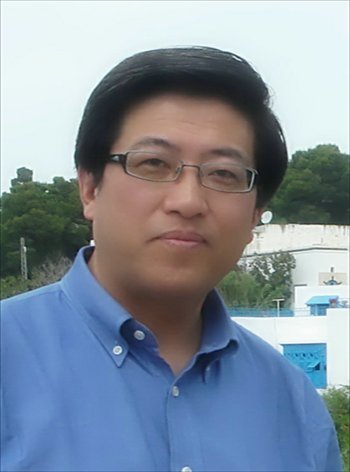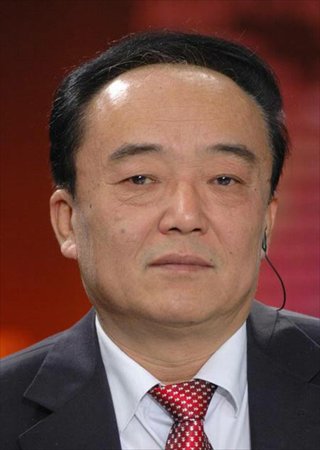Give Libya time for democratic switch


Editor's Note:
Libya's first elections since the fall of former leader Muammar Gaddafi's regime were held on Saturday. The elections for a 200-seat National Assembly were held amid attacks on polling stations and rejections of the elections in some areas. Will the result of the elections gain widespread acceptance? How do Libyans see the process of democratization? Global Times (GT) reporter Shu Meng invited Li Weijian (Li), director of the Institute for Foreign Policy Studies of the Shanghai Institutes for International Studies, and Yin Gang (Yin), a researcher at the Institute of Western Asian and African Studies at the Chinese Academy of Social Sciences, to talk about these issues.
GT: US President Barack Obama has hailed Libya's elections as a "milestone" as it will turn a new page for the country. Many Libyan people are excited to vote, but there are also many attacks on polling stations and some areas are not participating. How do you view this?
Li: The elections definitely herald the beginning of a new chapter of Libya. Old days have passed away. Libya can not return to the Gaddafi period. However, we don't know how the new period will look. We have to wait and see whether this is really a new system, or just a matter of form.
Elections are brand new to Libyan citizens. There are also a lot of unstable factors in the Libyan elections, since they lack the electoral experience of the West. However, this is par for the course. Many scholars speculated that problems would crop up after the fall of Gaddafi. The attacks on polling stations and rejections showed a series of differences which exist among different interest groups and tribes.
Yin: It makes sense that the elections are a milestone for Libya. After several decades' autocracy, Libya will enter a period of political reconstruction. Therefore the elections are a historic turning point for the country.
The electoral law was enacted on moderate terms. Most of the boycotts are from the Benghazi region, which was historically Cyrenaica, an eastern region of Libya. This region wants a federal system of government so it can have more power and regional autonomy.
Generally speaking, the elections cover the interests of a wide range of forces. There are 80 seats for party lists and 120 constituency seats, with independent candidates only, in the 200-seat National Assembly. The seats for the independent candidates are the representatives of interests of regional and tribal forces. I think the boycott doesn't help the citizens of Benghazi.
GT: The eastern region of Libya has queried the uneven distribution of seats. Given this inconsistency, will the result of the elections gain acceptance? Will it result in a potential split?
Li: It will take time for Libyans to become familiar with the elections, which is a long-term process. The conversion process is unlikely to go smoothly because people need time to adapt to a new system.
The national situation in Libya is complex. There are many tribes and interest groups in the country. Hence potential conflicts and instabilities may occur because of the divergence of interests.
Yin: The result of the elections will gain acceptance from both Libyan political forces and international society. The forces in Cyrenaica pushing for self-government may be disadvantaged by the elections.
GT: How do you think the trend of politics in Libya will continue?
Li: The political course in Libya will remain unstable, which is foreseeable, Setting up institutions along the lines of Western models will not necessarily suit local conditions. I don't believe that Libya can become stable through only one election. This is normal. It takes time for a country like Libya to adapt to the new system.
Yin: The course of politics in Libya will definitely be difficult during the laborious reconstruction process. Several hundred armed groups refused to lay down their arms after overthrowing Gaddafi.
However, the electoral law was enacted on moderate terms this time. Many forces, such as the National Transitional Council and Islamic forces like Muslim Brotherhood are eligible.
Even some Islamic extremists, like the Libyan Islamic Fighting Group, have the equal right to participate in the elections.
GT: Libya paid a heavy price in the process of democratization. What does democracy mean to Libyan people?
Li: We cannot use the framework of democracy to interpret different problems in different countries. The definition of democracy in Libyan people's opinions, in Western perspectives and in our own eyes needs to be clarified.
Democracy is a good thing for every country in the world, but the key point is what kind of democracy it is. It doesn't work if Libya just copies the Western model. What kind of democracy Libya really needs should be explored gradually.
Yin: The Libyan people have sacrificed a lot on the path to peace and democracy. Henceforth continuous effort will still be needed. But the elections are positive.
The 80 listed seats are elected in 20 constituencies, and this gives consideration to the newly emerging political forces that rose against Gaddafi. It covers the interests of all sides.